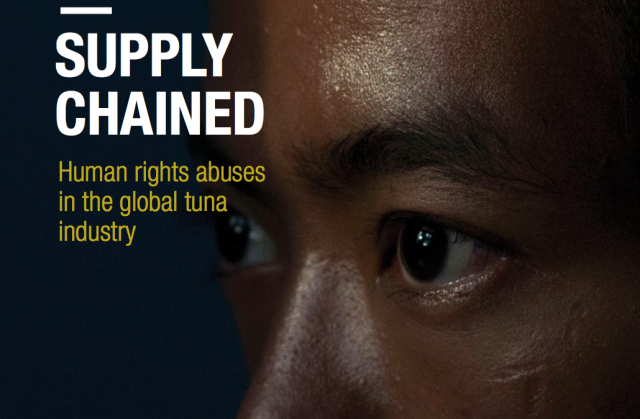Greenpeace is now beginning to focus on human rights violations in the supply chain.
In this week’s blog post we want to share a powerful report published by green peace exposing the truth about human rights violations in the Thai fishing industry, the tuna industry in particular. Its been widely reported for years that there is a myriad of human trafficking, forced labour and child labour in the workforce that harvests and processes tea, cotton, cocoa and coffee. Now the seafood industry is just emerging as an as another suspect. It’s not just Thailand either, the associated press won a journalism award recently for their work in uncovering the truth about slavery in the Indonesian fishing industry and the subsequent release of 2000 workers in forced labour conditions. You can read more about this here
So how do you know if you are eating fish caught by slaves?
Sorry to break the news. You can’t. Just like you can’t sift through chocolate and tea bag products and identify where the raw materials came from and who farmed it for you, you also can’t identify whether the fish on your plate originated from a country where slaves do the fishing for you. The nub of the problem is that the retailers you buy this stuff from only audit their direct suppliers (like a distributor) but they don’t have any visibility of who their supplier’s supplier is, or their supplier’s supplier’s supplier… and that is where these violation happen unbeknowns to us.
What can you do?
Ask. When you buy fish from your fish and chips shops, from coles or wherever, ask them where the fish comes from. If it comes from Thailand, Indonesia or Vietnam you know it’s high risk. When it’s cheaper than locally caught produce now you know why… But the answer is not to source away from these countries, the answer is in paying the right prices for items so that produce is sustainable right through the supply chain. That includes paying a living wage and protection of workers rights. When you pay dirt cheap prices for any items ask yourself what had to happen within the supply chain for you to enjoy your bargain, and be aware that the power lies with us as consumers to make more informed choices and in doing that forcing change.
